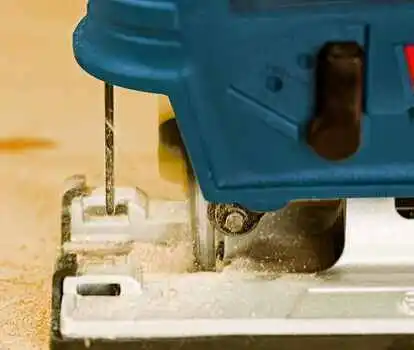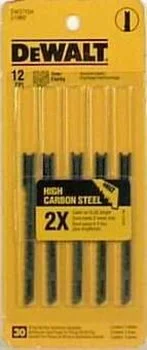Cutting plywood with a jigsaw can be a precise and efficient process, but the key lies in choosing the best jigsaw blade for plywood.
In this comprehensive guide, we’ll delve into the recommendations from industry experts about which jigsaw blade to use for plywood, to help you navigate the world of jigsaw blades for plywood. lets delve into choosing the right jig saw blade for plywood: a comprehensive guide
Which Jigsaw Blade To Use For Plywood
| Top Choice |  | T-Shank Jigsaw Blades | See on Amazon |
| Best |  | HCS Jigsaw Blades | See on Amazon |
| Best |  | Fine-Toothed Blades | See on Amazon |
Best Jigsaw Blade for Plywood 2024
T-Shank Jigsaw Blades-Top Choice
Expert Recommendation: Look for T-shank jigsaw blades designed specifically for cutting plywood.
Why: These blades are engineered for powerful and clean cuts through plywood and other wood materials.
They are well-suited for making straight cuts, offering efficient performance in plywood projects.
HCS Jigsaw Blades-Best
Expert Recommendation: Blades made of high carbon steel are often recommended for cutting plywood.
Why: High carbon steel blades are known for their durability and versatility in cutting various wood types, including plywood. Seek out HCS blades with a tooth configuration suitable for plywood cutting applications.
Fine-Toothed Blades-Best
Expert Recommendation: Opt for jigsaw blades with fine teeth when cutting plywood.
Why: Blades with fine teeth are designed to deliver smooth and clean cuts in plywood. Their purpose is to minimize splintering and produce precise edges when working with plywood sheets.
Composition: Specifically designed with teeth pointing downward to minimize splintering.
Advantages: Reduce tear-out on the top surface of plywood, ensuring cleaner cuts.
Applications: Perfect for projects where a splinter-free top surface is crucial, such as in finish carpentry or cabinetry.
Considerations for Selection:
- Plywood Thickness: Take into account the thickness of the plywood when selecting a jigsaw blade. Different thicknesses may require specific blade types for optimal results.
- Project Requirements: Assess the specific cutting requirements of your project. Whether it’s straight cuts or intricate patterns, choosing a blade that aligns with your project’s needs is crucial.
- Jigsaw Compatibility: Ensure that the selected jigsaw blade is compatible with your jigsaw model. The right pairing of blade type and jigsaw ensures seamless operation and optimal results.
Conclusion:
Choosing the right jigsaw blade for plywood involves a thoughtful consideration of the material’s thickness, project requirements, and the blade’s compatibility with your jigsaw. Whether it’s the efficiency of T-shank blades, the durability of high carbon steel, or the precision of fine-toothed blades, each type has its unique advantages.
Armed with this knowledge, you can confidently tackle plywood projects, achieving clean, precise, and professional-looking cuts with your jigsaw.


